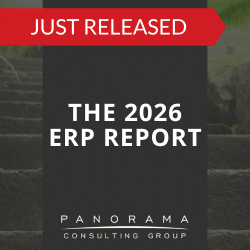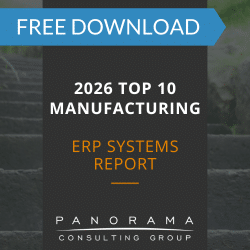It’s inevitable. It’s often ignored as part of the ERP selection and implementation process. Yet ERP project fatigue jeopardizes the quality and timeliness of deliverables. It also decreases job satisfaction for some of your best and brightest employees who have been selected for your project.
What Should an ERP Project Manager Do to Reduce ERP Project Fatique?
- Expect Fatigue – No matter how talented and experienced your team may be, plan for energy and enthusiasm to wane towards the middle of a project. The work seems endless, the end seems far away, and the work that has already been done feels long forgotten. The tough lingering questions about business processes may be hindering progress, and the necessary battles for progress are often thankless. Fatigue is inevitable. This is especially true with less experienced project members, who aren’t familiar with the phases and big picture. A wise project manager will be ready to respond to project fatigue before it begins affecting the performance of the project team.
- Assess Fatigue – This is easier than you think. A good relationship with your project team goes a long way towards supporting the kind of honesty that keeps you in tune. Take the time to address a wide range of issues with your team, beyond the next deliverables and milestones. Survey questionnaires are a great way to solicit input and check attitudes. Surveys also demonstrate a manager’s willingness to hear complaints and acknowledge difficulties, promoting a culture of truth. Take stock of attendance, punctuality, deadlines, and engagement at the beginning of your project. If you have established expectations for punctuality and efficiency, it will be easier to spot observable behaviors that indicate problems. Think of the chronically late and double-booked folks, and consider whether they are fatigue candidates.
- Acknowledge Fatigue – An integrated project activity calendar can illustrate when heavy demands are ahead. When fatigue becomes evident or suspected, acknowledge the reality and impacts of the problem. This is an opportune time to extend recognition for extra efforts, and make sure tangible rewards or encouragement is forthcoming.
- Combat Fatigue – There are a number of effective ways to mitigate sources of fatigue. Expecting, assessing, and acknowledging the problem are critical starting points. Now what?
- Incorporate project member’s wellbeing into regular status reports, adopt a scale which reflects the level of work load and required effort to meet demands.
- Think about your rewards and recognition plan. Communicate it clearly, and follow through.
- Don’t overlook the rejuvenation a fun break can provide. Search online (for example, www.training-games.com has 40 free ice-breaker activities) for quick activities that build the team while clearing the air with some lightheartedness.
- Adjust timelines to workloads if needed.
- Allow occasional work from home days for appropriate tasks.
- Consider “role sharing” and encouraging teams to rotate tasks.
- If project members have competing demands on their time (ie. being still accountable for operational duties), advocate to the highest level needed for additional resources. The effort will be appreciated, even if the request is denied.
- Get more mileage by communicating your efforts to combat fatigue.
Stress and fatigue are inevitable in an ERP project. Being a leader who actively combats them better positions your project for an on-time delivery. Take the time and effort to plan your combat approach, so both you and your project team will benefit.
Blog entry written by Lena Laakso, Manager of Organizational Change Management at Panorama Consulting Group.












